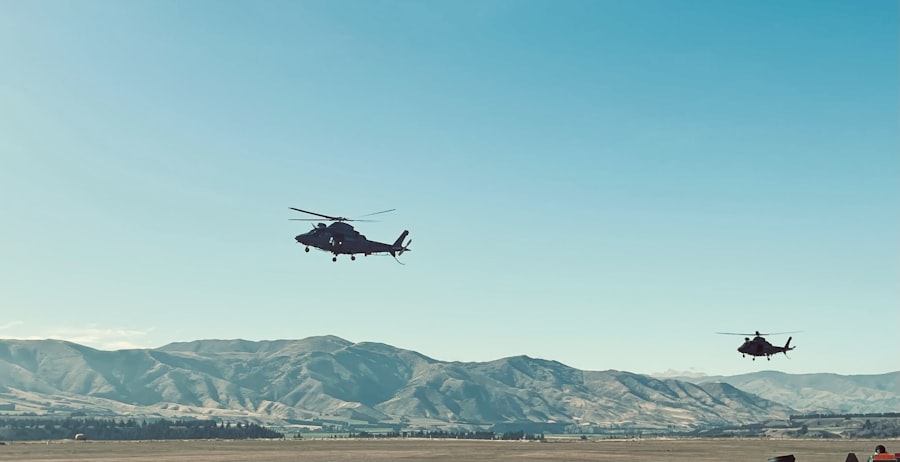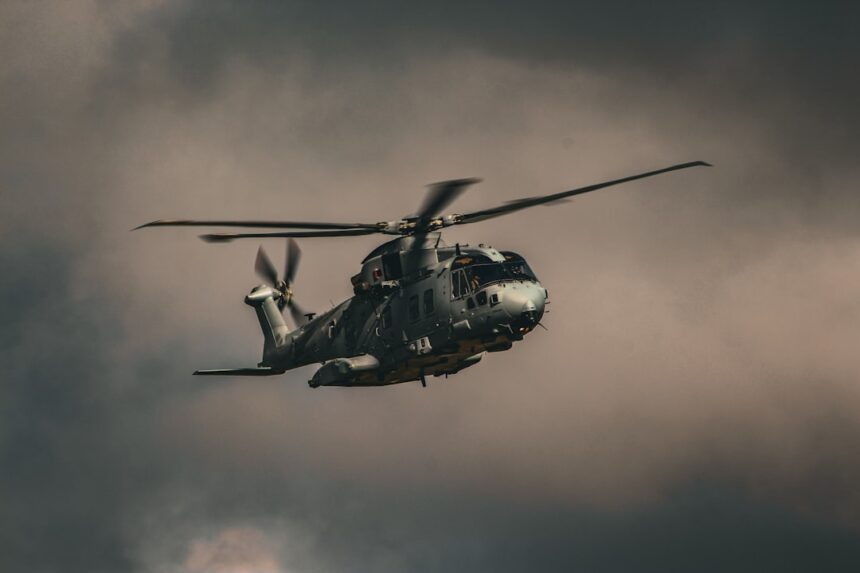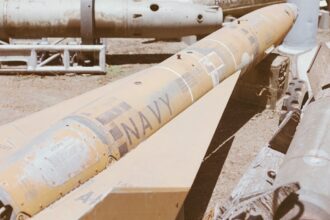The relationship between the Pentagon and Hollywood is a complex and multifaceted one, characterized by collaboration, influence, and sometimes controversy. The Pentagon’s involvement in the film industry has grown over the decades, with military officials recognizing the power of cinema as a tool for shaping public perception and promoting a favorable image of the armed forces. This influence extends beyond mere consultation; it often involves direct input into the narratives and themes presented in films.
As a result, the portrayal of military operations, personnel, and values in popular culture can be significantly shaped by the interests of the military establishment. This dynamic raises important questions about artistic freedom, authenticity, and the ethical implications of such collaborations. While filmmakers may seek the resources and expertise that the Pentagon can provide, they must also navigate the potential constraints imposed by military oversight.
The interplay between creative expression and military objectives creates a unique landscape where entertainment and propaganda can sometimes blur, leading to a nuanced discussion about the role of the Pentagon in shaping cinematic narratives.
Key Takeaways
- The Pentagon has a significant influence on movie scripts, often shaping the portrayal of the military in Hollywood films.
- The history of the Pentagon’s involvement in Hollywood dates back to the early 20th century, with a long-standing relationship that has impacted the content of many films.
- Military cooperation can greatly impact movie production, providing access to equipment, locations, and personnel in exchange for script approval and positive portrayal of the military.
- Military advisors play a key role in shaping movie scripts, ensuring accuracy and promoting a positive image of the military in films.
- The portrayal of the military in Hollywood films can have ethical and moral implications, influencing public perception and potentially serving as a form of propaganda.
The History of the Pentagon’s Involvement in Hollywood
The history of the Pentagon’s involvement in Hollywood dates back to World War II when the U.S. government recognized the potential of film as a means of boosting morale and promoting enlistment.
As the years progressed, this relationship evolved into a more structured partnership, with the establishment of formal channels for collaboration between military officials and filmmakers. In the decades that followed, particularly during the Cold War, the Pentagon’s influence on Hollywood became more pronounced. The military began to offer resources such as access to equipment, locations, and technical advisors in exchange for a degree of control over how military operations were depicted on screen.
This partnership was not without its challenges; filmmakers often found themselves negotiating between their creative vision and the demands of military oversight. Nevertheless, this historical context sets the stage for understanding how deeply entrenched this relationship has become in contemporary cinema.
The Impact of Military Cooperation on Movie Production

Military cooperation can significantly impact movie production, often enhancing the authenticity and realism of films that depict military themes.
This includes everything from authentic military hardware and aircraft to expert advisors who can provide insights into military protocols and operations.
Such resources can lend credibility to a film, making it more appealing to audiences who seek an accurate representation of military life. However, this cooperation also comes with strings attached. Filmmakers may find themselves under pressure to conform to certain narratives or portrayals that align with military interests.
This can lead to a sanitized version of events that glosses over the complexities and moral ambiguities often inherent in warfare. While some filmmakers embrace this partnership for its practical benefits, others express concern about how it may compromise their artistic integrity and limit their ability to tell nuanced stories about war and its consequences.
The Influence of Military Advisors on Movie Scripts
| Movie Title | Year Released | Military Advisor | Impact on Script |
|---|---|---|---|
| Black Hawk Down | 2001 | Col. Lee Van Arsdale | Ensured accuracy in depicting military tactics and equipment |
| Zero Dark Thirty | 2012 | Joseph Bradley | Provided insight into CIA operations and enhanced realism |
| American Sniper | 2014 | Chris Kyle | Offered firsthand accounts of combat experiences for authenticity |
Military advisors play a crucial role in shaping movie scripts, often providing input that can alter character development, plotlines, and dialogue. These advisors are typically active or retired military personnel who bring firsthand experience to the table, offering filmmakers insights that can enhance authenticity. Their contributions can range from ensuring accurate depictions of military tactics to advising on the portrayal of interpersonal relationships among service members.
While this expertise can enrich a film’s narrative, it also raises questions about whose stories are being told and how they are framed. Military advisors may advocate for portrayals that align with their own experiences or perspectives, which can lead to a narrow representation of military life. This influence can inadvertently shape public perceptions of the military, reinforcing certain stereotypes while sidelining others.
As such, the role of military advisors in script development is a double-edged sword—providing valuable insights while also potentially constraining creative expression.
The Portrayal of the Military in Hollywood Films
The portrayal of the military in Hollywood films has evolved over time, reflecting broader societal attitudes toward war and service. In earlier decades, particularly during World War II and the Cold War, films often depicted soldiers as heroic figures fighting for freedom and justice. These narratives served to bolster public support for military actions and foster a sense of national pride.
However, as societal views on war have shifted—especially following conflicts like Vietnam and Iraq—the portrayal of military personnel has become more complex. Contemporary films often grapple with themes of trauma, moral ambiguity, and the psychological toll of warfare. While some productions continue to celebrate military heroism, others delve into the darker aspects of conflict, exploring issues such as PTSD and ethical dilemmas faced by soldiers.
This shift reflects a growing recognition of the multifaceted nature of military service and its impact on individuals and society as a whole. Nevertheless, even in these more nuanced portrayals, the influence of the Pentagon remains palpable, as filmmakers navigate the delicate balance between authenticity and military interests.
The Ethical and Moral Implications of Pentagon Influence

The ethical implications of Pentagon influence on Hollywood films are significant and multifaceted. On one hand, collaboration with the military can enhance realism and provide audiences with a deeper understanding of military life. On the other hand, it raises concerns about censorship and propaganda, as filmmakers may feel compelled to present a sanitized version of events that aligns with military objectives.
This tension between artistic freedom and institutional oversight poses ethical dilemmas for creators who wish to tell authentic stories about war. Moreover, there is an inherent moral responsibility that comes with depicting warfare on screen. Filmmakers must consider how their narratives shape public perceptions of conflict and influence societal attitudes toward veterans and active-duty personnel.
When films prioritize military interests over nuanced storytelling, they risk perpetuating stereotypes or glorifying violence without addressing its consequences. As such, navigating these ethical waters requires careful consideration from both filmmakers and military officials involved in the collaboration.
The Effect on Public Perception of the Military
The portrayal of the military in films has a profound effect on public perception, shaping how audiences view service members and their roles in society. When films depict soldiers as heroic figures engaged in noble causes, they can foster admiration and respect for those who serve. Conversely, when narratives highlight the complexities and moral ambiguities of warfare, they can lead to critical discussions about military actions and their implications.
The Pentagon’s influence on these portrayals complicates this dynamic further. By providing resources and support for certain narratives while potentially suppressing others, military involvement can skew public perception in favor of a particular viewpoint. This raises important questions about accountability and representation—who gets to tell these stories, and what messages are being conveyed?
As films continue to shape societal attitudes toward the military, understanding this influence becomes increasingly vital for fostering informed public discourse.
The Role of Propaganda in Movie Scripts
Propaganda has long been an integral part of wartime cinema, serving as a tool for governments to rally support for military actions and shape public opinion. The Pentagon’s involvement in Hollywood often blurs the lines between entertainment and propaganda, as films produced with military cooperation may carry implicit messages designed to promote a favorable image of the armed forces. This relationship raises critical questions about artistic integrity and the responsibilities of filmmakers in representing complex realities.
While some filmmakers embrace this partnership as an opportunity to create compelling narratives that resonate with audiences, others express concern about how propaganda influences storytelling. The challenge lies in balancing creative expression with the potential for manipulation—ensuring that films remain authentic representations rather than vehicles for promoting specific agendas. As audiences consume these narratives, they must remain vigilant about recognizing underlying messages that may shape their perceptions of war and service.
The Potential for Bias and Censorship in Hollywood
The potential for bias and censorship in Hollywood is an ongoing concern within discussions about military influence on film production. When filmmakers collaborate with the Pentagon, they may face pressure to conform to certain narratives or avoid topics deemed sensitive or controversial by military officials. This dynamic can lead to self-censorship among creators who fear losing access to valuable resources or support if their projects do not align with military interests.
Such biases can manifest in various ways—from altering character arcs to omitting critical perspectives on warfare. As a result, audiences may receive a skewed representation of military life that fails to capture its complexities or challenges. This raises important questions about accountability within Hollywood—how can filmmakers ensure that their work remains true to their vision while navigating external pressures?
Addressing these concerns requires ongoing dialogue between creators, industry stakeholders, and audiences alike.
The Importance of Transparency in Military-Hollywood Relations
Transparency is crucial in navigating the complex relationship between the Pentagon and Hollywood. Open dialogue about the nature of collaborations can help demystify the influence exerted by military officials on film production while fostering accountability among creators. By acknowledging these partnerships openly, filmmakers can empower audiences to critically engage with narratives presented on screen—recognizing both their artistic merits and potential biases.
Moreover, transparency can encourage filmmakers to explore diverse perspectives within their narratives rather than conforming solely to military interests. By fostering an environment where multiple voices are heard—both from within the military community and beyond—Hollywood can produce more authentic representations that resonate with audiences while honoring the complexities inherent in warfare.
Why the Pentagon’s Influence on Movie Scripts Matters
The Pentagon’s influence on movie scripts is a significant aspect of contemporary cinema that warrants careful consideration from both creators and audiences alike. As filmmakers navigate this complex relationship, they must balance artistic expression with ethical responsibilities while remaining aware of how their narratives shape public perceptions of war and service. Understanding this dynamic is essential for fostering informed discussions about representation in film—recognizing both its potential for authenticity and its capacity for bias.
Ultimately, acknowledging the Pentagon’s role in shaping cinematic narratives allows audiences to engage critically with films that depict military life while fostering greater awareness of the broader implications at play. As society continues to grapple with issues related to war and service members’ experiences, understanding this influence becomes increasingly vital for promoting nuanced conversations about these important topics within popular culture.
In exploring the intriguing relationship between Hollywood and the military, the article “Why the Pentagon Edits Movie Scripts” delves into the complexities of how and why the U.S. Department of Defense influences film productions. This collaboration often results in the military providing resources and technical expertise in exchange for script approval, ensuring that the portrayal aligns with their image and objectives. For a deeper understanding of the dynamics at play, you might find the related article on the same website insightful. It offers a broader perspective on the subject, shedding light on the strategic interests behind such partnerships. You can read more about it by visiting this article.
CHECK THIS OUT! 📽️🎞️ Hollywood’s Secret War: How the CIA Rewrote Movies
FAQs
What is the purpose of the Pentagon editing movie scripts?
The Pentagon edits movie scripts to ensure that the portrayal of the military and its personnel in films is accurate and aligns with their values and objectives.
How does the Pentagon’s involvement in movie scripts work?
The Pentagon offers access to military equipment, locations, and personnel to filmmakers in exchange for the opportunity to review and suggest changes to the scripts to ensure accuracy and positive portrayal of the military.
Why do filmmakers agree to Pentagon’s involvement in their movie scripts?
Filmmakers often agree to the Pentagon’s involvement in their movie scripts in order to gain access to military resources, which can add authenticity to their films and reduce production costs.
Does the Pentagon have final say in the movie scripts they edit?
While the Pentagon can suggest changes to movie scripts, filmmakers ultimately have the final say in whether or not to incorporate those changes into their films.
Are there any criticisms of the Pentagon’s involvement in movie scripts?
Critics argue that the Pentagon’s involvement in movie scripts can lead to censorship and the promotion of a biased or overly positive portrayal of the military, potentially influencing public perception.




